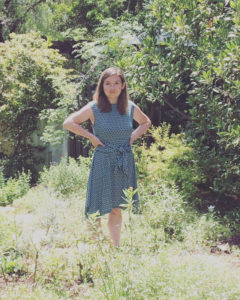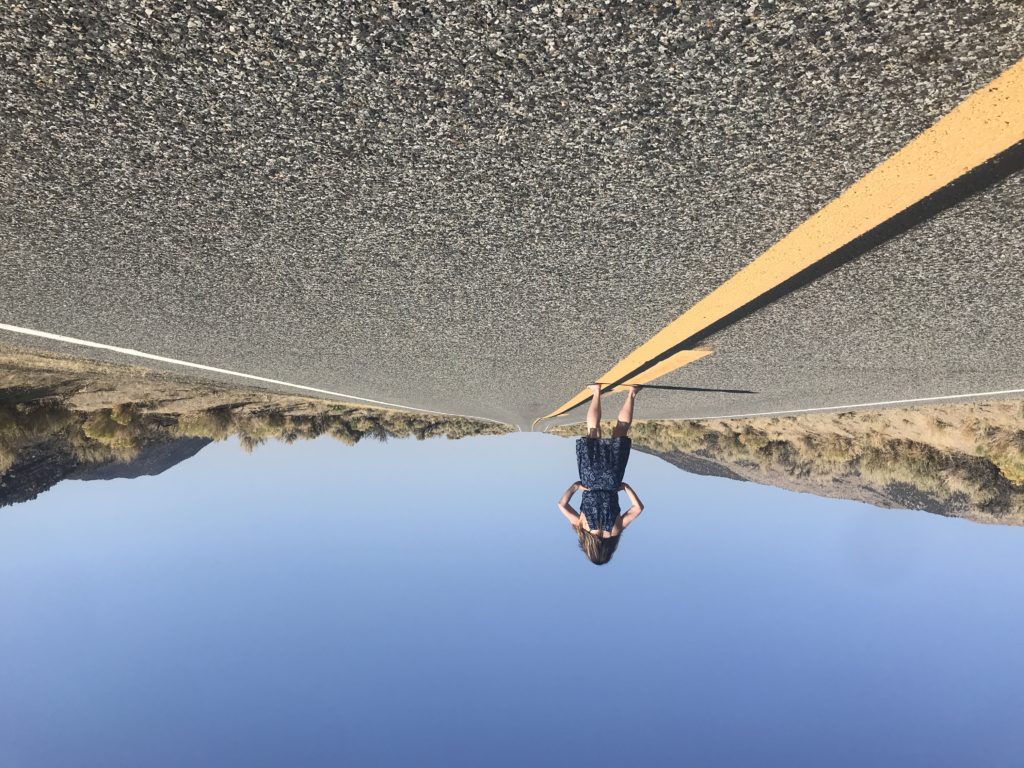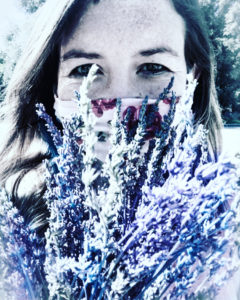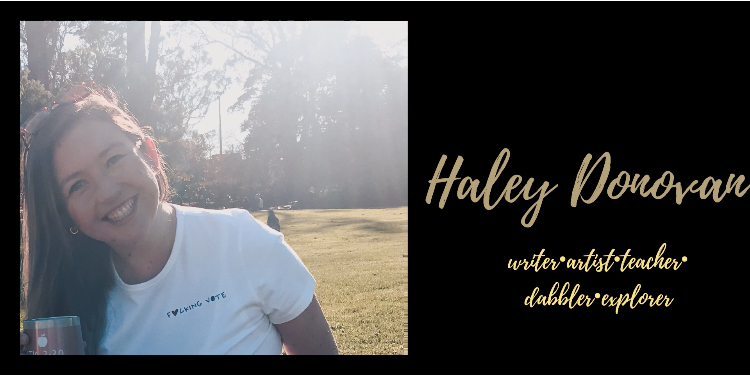I think there are two main types of seasons: the calendar ones, and then ones that emerge, ones that are marked distinctly by notable events in people’s lives. The latter one, the kind that are marked distinctly by notable events in people’s lives, those ones you can’t predict. And they become a part of your internal calendar. The season when I was in Hilary’s wedding. The season when I walked the Camino de Santiago with my family. The season when I found out my mom had breast cancer. The season when I found out the cancer disappeared. The season when my girlfriends and I do visionboarding. The season when I began my first classroom job.
I would argue that these are more than merely memories, because in so many ways, they come with cues that our senses register– the way the light hits the buildings in the afternoon, the surrounding standard calendar events, familiar scenery that renders a striking association.
And February, my friends, marks a very important season. Unfortunately this season didn’t come with bridesmaid dresses or diplomas or giddy texts bearing incredible news. But it’s just as important to talk about, because it also marks a year since I’ve done any robust writing. It marks a year that launched an arduous but necessary rebuilding process. It marks a year since I learned the hard way about the importance of running yourself ragged without paying attention to your energy stores and your mental well-being.
This season last year was the season I unraveled. Spoiler alert, for those who get anxious about outcomes: I re-raveled, if that’s a word, (it’s not) but it was a journey and a half. It’s a process, a personal story, that I keep tucked away from most people. For a perfectionist, perhaps even worse than asking for help is admitting that you didn’t ask for help until you were past the point where asking for help would make a difference.

For those of you who know my writing, many of you know that I used to write about navigating our relationship with fear. I used to write thoughtpieces about metaphors I could extract from everyday experiences. I wrote about obstacles I had overcome and lessons learned. For those of you who have followed my writing, you also may have noticed that I haven’t done much writing in the past year. The reason being is, before I could write even another word about navigating our relationship with fear, I needed to take a serious pause and navigate my relationship with myself. It’s hard to write about the hard stuff. We don’t really like to talk about the hard stuff. It’s much easier and satisfying to write about something that you feel you’ve got down pat.
But the hard stuff needs to be talked about too. So this is me, taking off my “aspiring-to-give-a-TED-talk” hat and instead taking a deep breath and putting on the “how about I share the hard stuff for a sec” hat.
Let’s get back to the unraveling, shall we? Last February, I made a doctor’s appointment to figure out what the heck was happening to my body. I was, according to a number of mentors in the teaching field, undergoing what was called “secondary traumatic stress” or “compassion fatigue.” STS is defined by the National Child Traumatic Stress Network as:
“the emotional duress that results when an individual hears about the firsthand trauma experiences of another. Its symptoms mimic those of post-traumatic stress disorder (PTSD). Accordingly, individuals affected by secondary stress may find themselves re-experiencing personal trauma or notice an increase in arousal and avoidance reactions related to the indirect trauma exposure. They may also experience changes in memory and perception; alterations in their sense of self-efficacy; a depletion of personal resources; and disruption in their perceptions of safety, trust, and independence.”
Faced with this combined with workplace stress, untreated anxiety, a jam-packed calendar as a grasping-for-straws way to distract myself from the tidal wave of burnout I felt cresting, I was a miserable human being who refused to acknowledge that I needed to slow down. I drank like a fish, denied myself proper nutrition, and insisted that I had everything under control. My close friends and loved ones expressed their concern about my hamster-in-a-wheel lifestyle, but each time I’d flash them a stoic smile and say “It’s fine. It’s just a rough year. I got this.” I am a firm believer in gratitude and resilience, and I also believe that our culture’s obsession with toxic positivity can also be hugely detrimental to our own well being. While there’s no magic formula for deciphering one from the other, I’m here to tell you: it’s okay to admit that things are, in fact, not fine.
So February 2020 comes along, and, running from myself and my problems faster than Forrest Gump could move his two legs, I decide to willingly invest all my kaleidescopic feelings into quite possibly the messiest pseudo-relationship you could think up — with a pandemic that was mere weeks away. So here I am, tumbling into this very volatile dynamic, while on a personal level physiologically not okay, mentally maxed out, professionally facing what felt like an existential crisis, and my body is giving me all these warning signs. My temper was gawk-worthy short. I was unable to prioritize or complete tasks. Simple items like putting in my contacts felt as big as doing my taxes. I had a hard time making eye contact. I was rapidly losing weight. As it turns out, your body will announce LOUD AND CLEAR when something is not right. But you need to be willing to listen.
Then, as if overnight, the pandemic hit all of us over the head with a massive wallop of uncertainty, and I fell off the tightrope I was so precariously teetering on. All of a sudden there was a virus that was essentially invisible, that was taking people’s lives, that we knew so little about and how it behaved. I’ve always struggled with anxiety, but now my predisposition to OCD emerged on the scene, and with it, its good friend depression. Between all my go-to coping mechanisms being yanked away, the preceding events of the year, our profession being turned on its head as we scrambled to come up with a distance learning plan, and the formidable nature of the pandemic, the last remnants of my well-being slipped through my fingers and I entered what is considered a Major Depressive Episode.
Depression is one of the most difficult things to describe, in part because it shows up differently for everyone. Reduced to a few sentences, it goes a little bit like this: being completely robbed of one’s ability to be in the present moment; a deep sense of hopelessness and a fierce belief that this will be your permanent existence; a complete lack of interest or joy in activities that used to bring about pleasure; a total inability to motivate oneself to carry out the activities that keep one happy, healthy, and thriving; tremendous guilt that you feel this way and an internal insistence that you are completely and utterly alone in these sensations or in this headspace.
There would be days at a time when I would wake up, roll out of bed, have a coffee and a banana, do my job, walk twenty steps to the bathroom, shower, pour myself into bed, and stare out the window until I fell asleep. I compromised friendships, dropped off the map for many, stopped sharing laughs with my family, and completely surrendered to the depression. The thing that kept me getting out of bed every day from April to June was a commitment to my students and my school community, the unwavering love, support, and curiosity of my family, and several very close friends. With a summer unlike any other in front of me, I had two choices: to spiral downwards deeper, or to bring out the big tools, since we were working with a big problem. Through the fog of my depression, I passionately and frantically missed my old self and my old life.

So I did what I never thought would be written into the chapters of my adult life: I entered an eight-week, fully-virtual depression recovery program. Monday through Friday, 9am-3pm. When people asked what I was doing over the summer, I would reply with “Oh I found this great mindfulness course,” hoping that people would conjure up images of green juice and vinyasa, rather than me joining group on a typical Thursday and saying “Hi I’m Haley and today I’m feeling optimistic…or anxious..or hopeful…or frustrated”
Over the course of eight weeks, I fiercely fought my way out of my first major depressive episode with the guidance and support of amazing counselors, dance movement therapists, my family, close friends, and the other individuals in my group who, just like a kindred spirit who sits next to you on an airplane, I will probably never cross paths with again, in the most bittersweet of ways. I cried a lot. I journaled a lot. I did participate in great mindfulness courses, but I never drank a green juice nor completed a vinyasa flow. I learned more about myself than I thought was possible. I learned how to paint.
I learned that as long as you have a mind, you fall into the category of needing to take care of your mental health– not just if you’re teeter tottering. Rather, everyone owes it to themselves to treat their mental wellness as sacred and a component of their overall health. I learned about the stigma of mental health, and how I want to be part of breaking the stigma– by speaking about it openly and honestly and frankly and vulnerably. I learned to not be afraid of my depression or my anxiety, because the same deep feelings that washed over me in the springtime are also what enable me to feel deep joy and gratitude and affection.
While the account of my unraveling, subsequent summer, and re-raveling (still lobbying for that to be a word) ends with a full recovery and bouncing back, it’s important to note that maintaining mental wellness is a lifelong practice– and not just for those who have had hit particular lows. Our mental wellness is precious– and not to be taken for granted. Be good to yourselves. Be aware of your self-talk. Stay mindful of how much you’re taking on. Embrace therapy. Listen to your body. Find solace in the fact that you are joined by literal billions of folks who are trying to navigate this very complicated world in these very complicated vessels.

I share this story now because I know the pandemic has been unthinkably rough on people’s mental health. The isolation that many confront lead people to symptoms that then further exacerbate the feeling of being alone. If you or someone you know is struggling, I am here to tell you: you are not alone, there is nothing wrong with you, and there is no shame in asking for help.
And regardless: no matter who you are or what journey you’re traveling on, no matter what season you’re in– you are the only you there is, and you are worth fighting for.

Amen! Thanks for sharing a scary time of your life and being real with us. You rock- love you deeply- cousin Bev
I am always so inspired by you Haley. Thank you for sharing your story, as this resonates for me in so many ways. You are such a tower of strength, beauty, and love.
I am always so inspired by you Haley. Thank you for sharing your story, as this resonates for me in so many ways. You are such a tower of strength, beauty, and love.